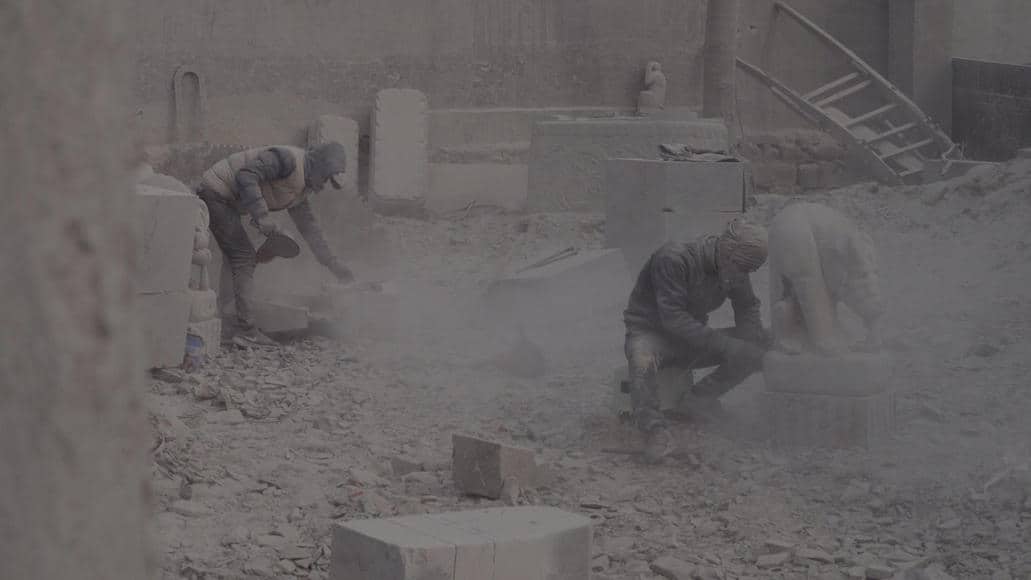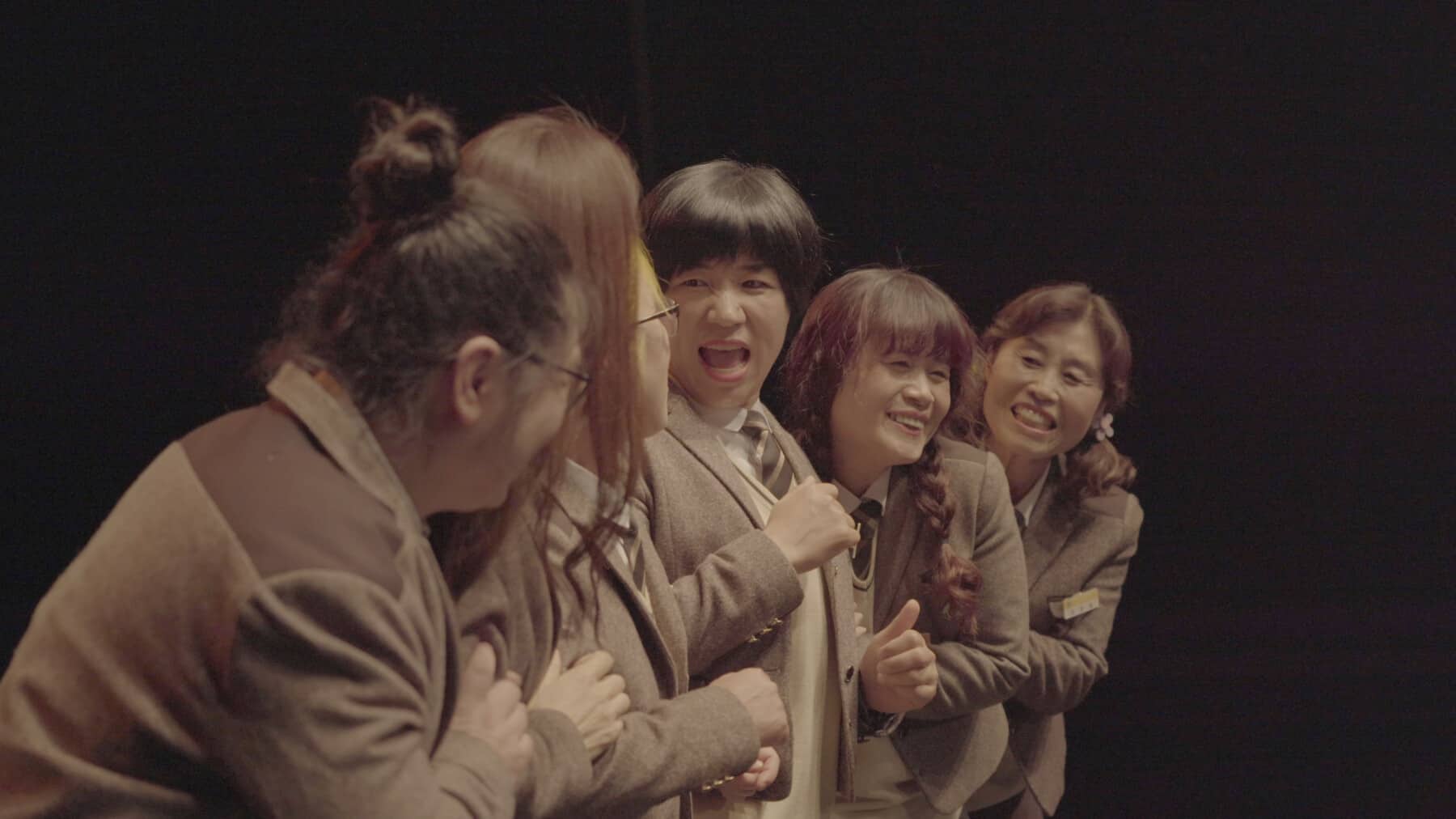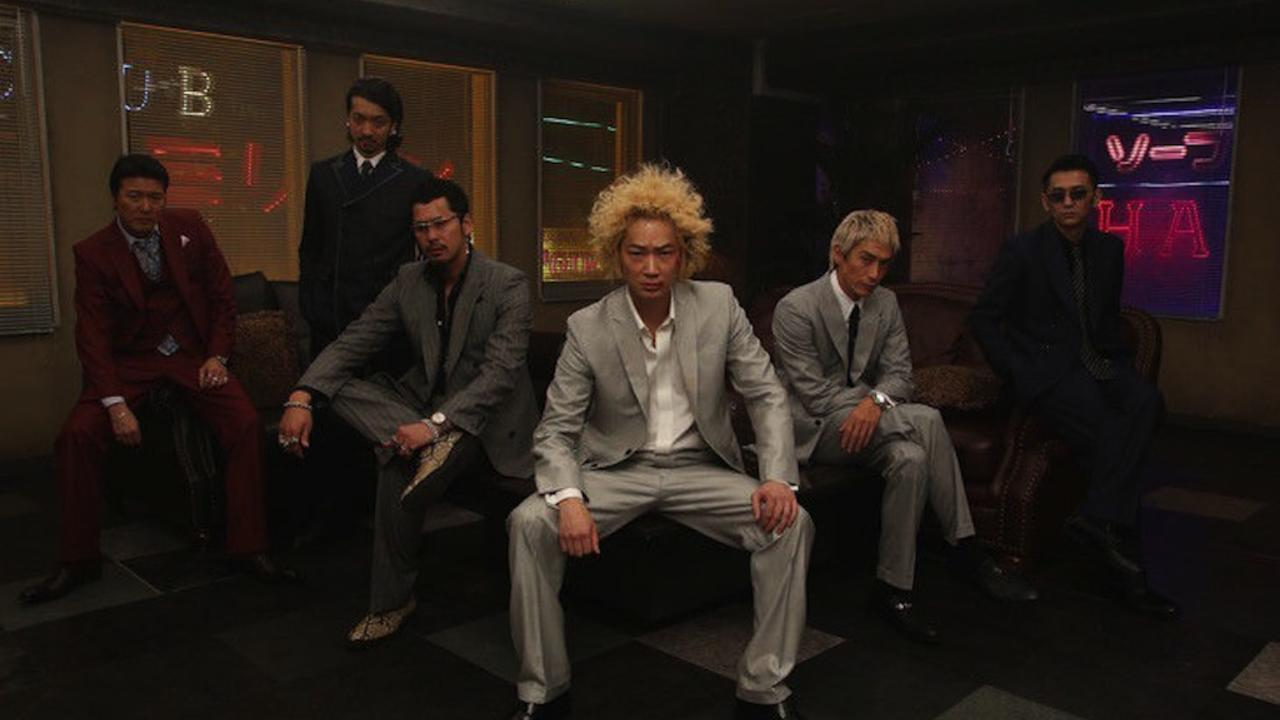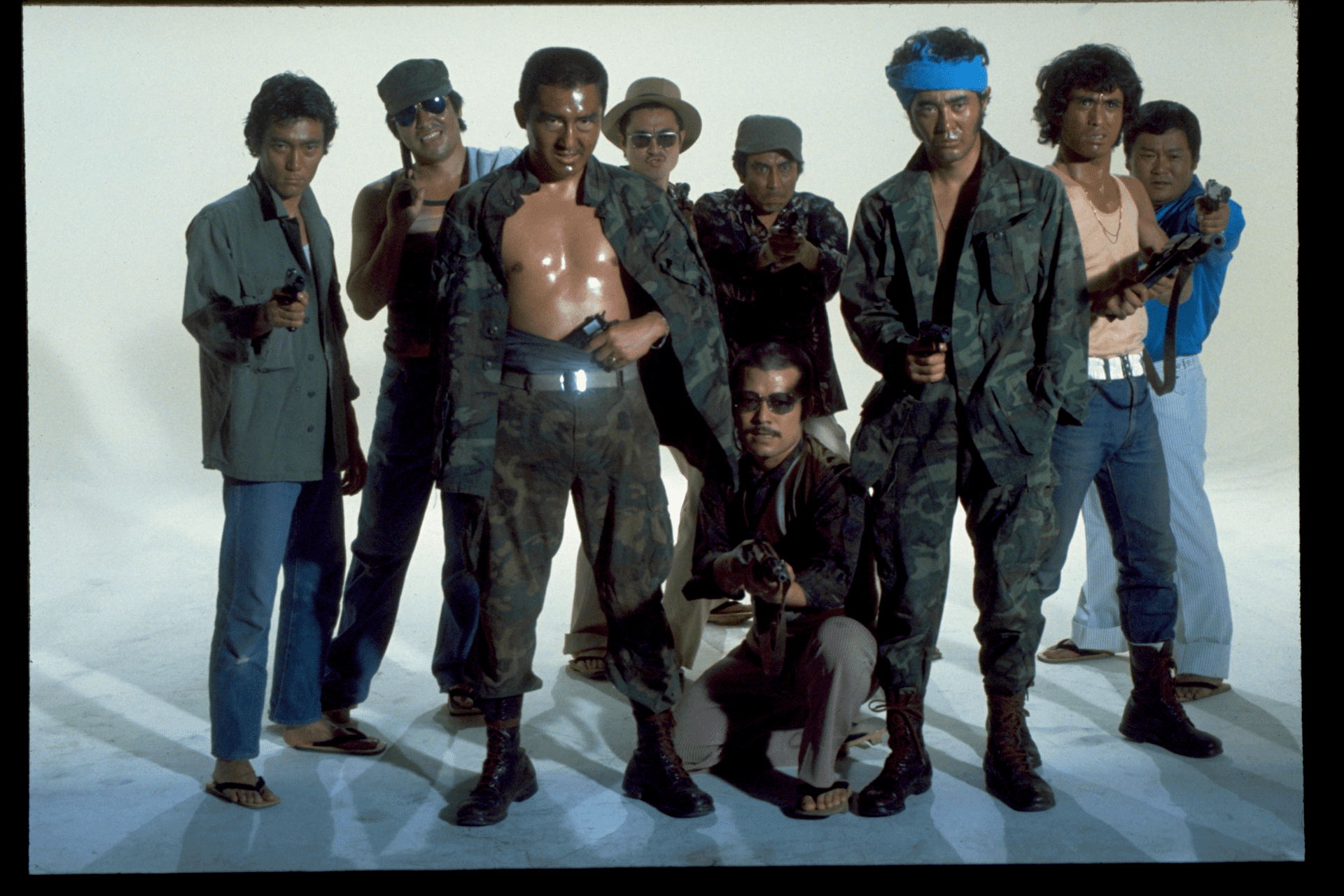“Tokyo doesn't agree with country people. After a month we all go crazy.”
Ever since he started working for the Japanese production company Toei, director Kinji Fukasaku's trademark had been the Yakuza-movie containing a multitude of characters, swift, dynamic camera movements and an often cynical comments on Japanese society after World War II. His two series of films, “Battles Without Honor and Humanity” and “New Battles Without Honor and Humanity”, had established his reputation among industry and audience alike, resulting in a boom for the genre and studios mass-producing films of the same style. According to Fukasaku's biographer Sadao Yamane and authors like Patrick Macias, by the time the system had reached the 1960s, there was a dead end with a significant decrease in audiences demanding a re-orientation towards other topics and directors.
Buy This Title
“Doberman Cop”, among such films like “Lady Snowblood”, the “Lone Wolf and Cub”-series and the “Sasori”-films, was part of a wave of films based in Japanese gekiga, dramatic manga as Patrick Macias defines them. While a certain percentage of the film remained firmly set within the exploitation roots of the genre it belonged to, whether Yakuza, samurai or women in chains, the films imitated the emphasis on the dramatic center of the source material. For production companies such as Toei, working with gekiga as material for their films meant a relatively safe economic bet as most of these manga were quite popular among the Japanese public. Additionally, since one cannot eternally re-use the same formula like these companies had done in the past, over-saturating the market as a consequence, the new material also meant fresh ideas.
Also, “Doberman Cop” is based on the work of writer Bronson, who would later also work on “Fist of the North Star”, and artist Shinji Hiramatsu which introduced the readers to the character of Joji Kano, in the film played by Shinichi ‘Sonny' Chiba, a hard-boiled cop whose trademarks are a Harley Davidson-motorcycle and a .44 Magnum, an obvious reference to the Dirty Harry-movies which were huge hits in Japan.
Joji Kano (Chiba), a cop from Okinawa, arrives in Tokyo to investigate the killing of a girl from his village. Even though he attempts to cooperate with the police, he is belittled because of his looks, rural origin and superstitious beliefs in prophecies to help in the investigation. Thus unable to be supported by men of the Police Chief (Yasuhiro Suzuki), he decides to find the perpetrators himself leading him deeper into the shady back alleys of the city.
When his research leads him to former Yakuza Hidemori (Hiroki Matsukata), who now attempts to open a new career path for himself as a music manager, Kano makes the acquaintance of singer Miki Haruno (Janet Hatta), Hidemori's protege and a girl who looks strangely similar to the girl who died.

On the way from the station, he walks the streets of the nation's capitol still wet from the rain a few hours ago, which reflects the neon lights of the streets, the window advertising strip shows, nude shows and all the other nightlife attractions for the adult. The streets are filled with girls wearing saucy dresses touting for the attention of potential customers with their looks, before they have the chance to look anywhere else on this street which seems to have no end, the pimps observing the whole affair from a safe distance under a street lantern or hidden in the many dark alleys. As Kano sets his foot on the pavement carrying his army backpack and wearing his straw hat, he looks like a fata morgana, an apparition which does not fit. Making his way through the streets, the pimps look at him with a mixture of disgust and amusement, some of them keep their distance, though sensing the strength emanating from the relatively harmless hillbilly outlook.
“Doberman Cop”, as the title suggests, uses the well-known hard-boiled-formula as a foundation, albeit with some interesting changes. Even though Chiba is the perfect fit for the tough-as-nails cop suggested by the source material, Koji Takada's script does its best at showcasing the cracks in the shell as well; for example through his belief in superstition and rituals as he invites a priestess from the village he lives in order to support the investigation. There is also something rather likable about Chiba's portrayal, the way he is dressed, wearing a straw hat and a light brown leather jacket. And of course, there is the piglet he carries around with him for quite some time in the film, taking care of it as best as he can. As the movie progresses, he is characterized as a man who is attentive, aware of his surroundings and other people seemingly hiding behind the unremarkable disguise as the “country bumpkin” always underestimated by his opponents, who most of the time do not take him for granted.
Even Kano's strength is downplayed in the film. While of course, there are plenty of action scenes and fights in the movie, Fukasaku's film seems to raise the question about the effectiveness of this method, especially considering the last third of it. To further stress this point, Kano is labeled “Tarzan Cop” after an especially spectacular hostage rescue, a nickname nearly all of the other characters use in front of him, reducing him to pure strength without any brains, a comfortable thought for many of them as it confirms the prejudice they already have.
In the end, they can be assured the “country bumpkin” will fail in the city like so many others before him, like the young girl whose murder he attempts to investigate. As Hidemori explains to him, the world of show business, just like the criminal world he comes from, is a system of clearly defined winners and losers. In Fukasaku's film, the city as a setting works similarly, an everyday struggle to survive, especially in the world of crime and the Yakuza, as the director has so often shown in “Battles Without Honor and Humanity”, “Cops vs. Thugs” and “New Battles Without Honor and Humanity”. Even later films like “Battle Royale” have the same foundation, with society functioning on the dog-eat-dog principle, a machine fueled by those with money and power devouring the weak and the poor as a consequence. With his outlook and later collaboration with those frequently arrested and abused by the police force, Kano attempts to fight the system by investigating the murder of a girl -changed in the treadmill of the city, a desperate attempt to turn back the time and to find answers.
The city holds the promise of being a winner, a star which is at last the victory everyone hopes for. While Hidemori dreams of living the more prestigious and relaxed life of a manager with the water of show business turning out to be “muddier” than he expected, he basically continues his manners from his past “job” to his new one, everything in order to make him a success. For girls like Miki, life in the city, a budding career as a singer under the protection of a former Yakuza has taken quite a toll on the rather fragile looking girl, a need for strength Hidemori tries to compensate through displays of affection for her and giving her drugs. In what might be the best scene in the film, she runs away, heading for a flower shop where she takes a rose and firmly clutches the thorn in her hands until she bleeds. Since the endless repetition of the same statements and lyrics about love and passion have apparently made her numb, she tries to feel something even if it is pain, blood flowing from a wound which is not on the inside.
“Doberman Cop” is an action film displaying many of the qualities of Fukasaku's work in terms of dynamic characters and cinematography (Toru Nakajima) and a great performance by Chiba in the lead. While it never reaches the same level of narrative and thematic quality as his films before, it is an interesting entry in his body of work as well as Chiba's. By showing the tough guy-character, the film seemingly begins to doubt the effectiveness and usefulness of the character, especially since the forces he fights with are far too powerful.
Sources:
1) Beyond the film: Doberman Cop – an appreciation by Kinji Fukasaku's biographer Sadao Yamane
2) Macias, Patrick (2017) Doberman Days: Kinji Fukasaku, Sonny Chiba, and the Twilight of Toei Exploitation















